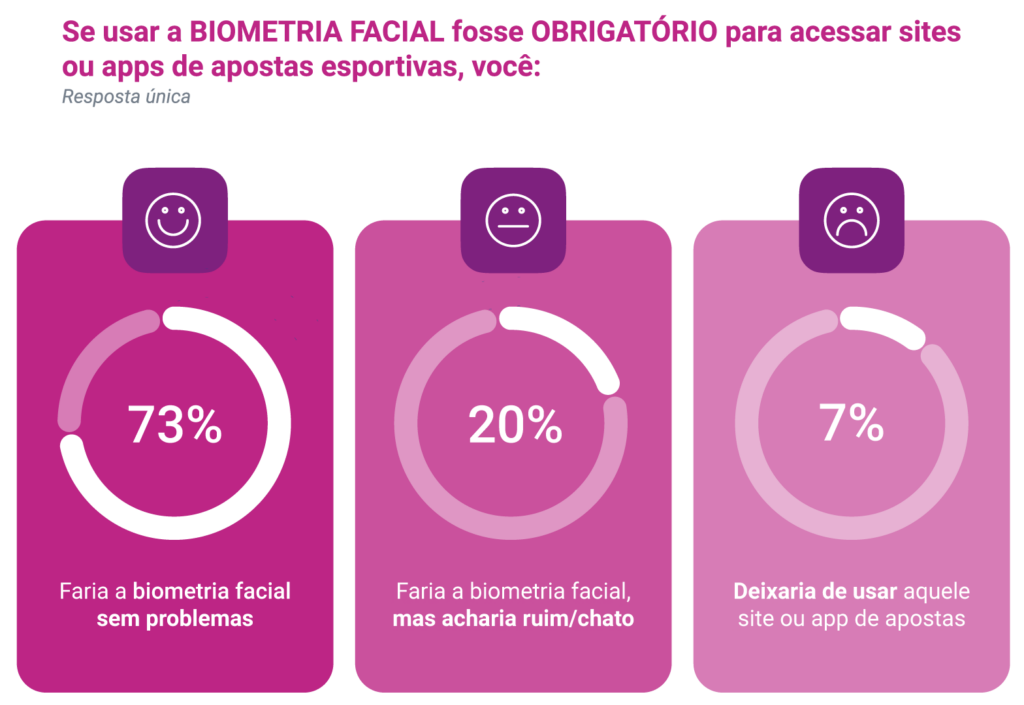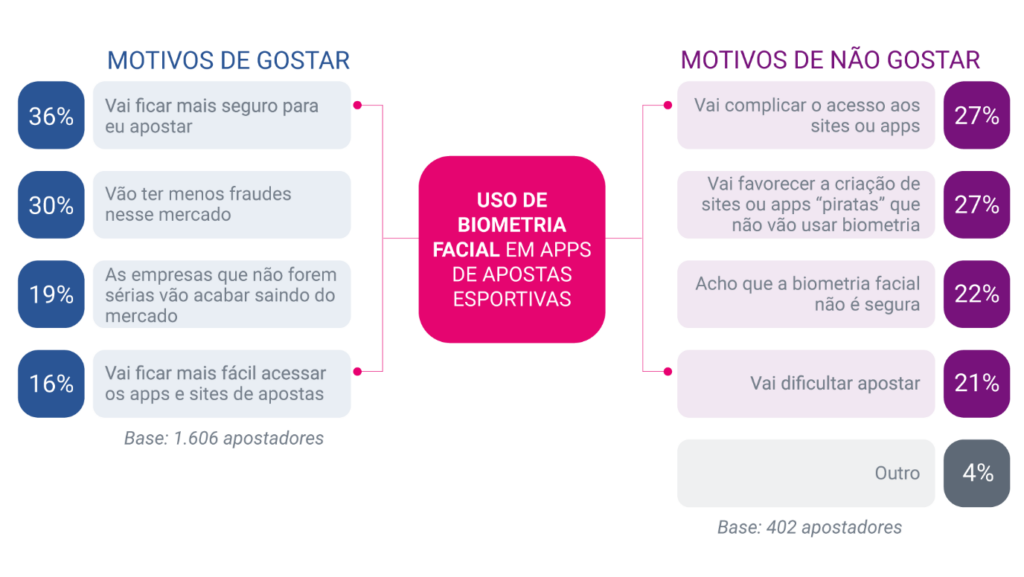Facial biometrics is a technology for authentication of users in online environments to mitigate fraud and is one of the requirements of the “Lei das Apostas” (Federal Law 14,790/23), resolution that establishes rules for bets to act in the country. About 80% of the Brazilian users of these platforms consider essential to use the tool in the sector and 73% would use without problems if it is mandatory, mainly to rescue values (36%), log (33%), make changes in the account (30%), among other reasons of the research are more.


The study also revealed that 68% of respondents have already used facial biometrics in other situations, indicating that there is familiarity with the technology. The regulation is known by 49% of respondents and, since the beginning of communications on the obligations of bookmakers, for 65% of them, the perception of security in the segment has increased.
“The more layers of authentication and fraud prevention are used to protect bettors and help industry companies identify and ban scammers, the better the betting environment in Brazil. The new regulation of bets is already requiring layers of security to be part of the user journey to authenticate them. From our side, we help companies with the assessment of authentication layers, combining our big data system with analytical intelligence to take full advantage of solutions and thus leverage them even more against” fraud, explains Rocha.
Although most research participants recognize the relevance of facial biometrics for the bet sector, the study also explored the reasons of those who reject the functionality. Among the criticisms, “hindificulting access to the” applications (27%) and “enable the emergence of fraudulent platforms that do not use” biometrics (27%) were the main reasons.On the other hand, those who approve the technology highlighted that “will be safer to bet” (36%) and “will have less fraud in this market” (301T.

The survey is a clipping of the study of the perception of bettors on safety in bookmakers, conducted with more than 2 thousand participants in August 2024. The complete material with all data accessed free of charge on the Serasa Experian website.
Valida Bets: bet from Serasa Experian for safer platforms
To accompany the efforts of the Brazilian Government, which since December last year, takes measures to regulate the performance of “bets” in the country, Serasa Experian , which supports any and all initiatives aimed at increasing security and integrity in transactions between companies and consumers “Valida Bets”, a strategic initiative that provides anti-fraud technologies to help companies in the betting sector to adapt to the new standards while contributing to the safety of bettors. In this way, datatech assumes in this context a strategic role as an ally in the processes of fraud prevention and protection of the identity of Brazilians, ensuring the support of the bettors' journey, as a compounding of the bet in all stages of the bettors.
Methodology
The quantitative survey "Sports Betting", conducted by Serasa Experian, was conducted with 2,008 respondents, all of whom placed sports bets on websites or apps in the last 12 months. With a margin of error of 2.2% and a confidence interval of 95%, the survey was administered via an online panel between August 9th and 22nd, 2024. The sample was balanced between females and males, with ages ranging from 18 to 27 years old (15%), 28 to 43 years old (49%), 44 to 59 years old (29%), and 60+ (7%).


